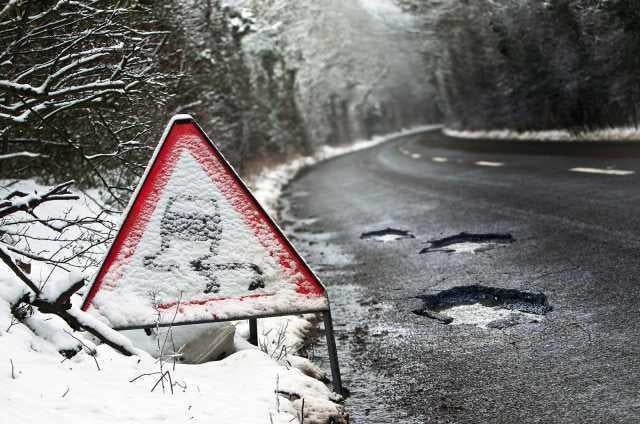Potholes – a risk to your car and your wallet
What can you do if your car is damaged by a pothole?

ALARM – how apt is that? That is the Annual Local Authority Road Maintenance survey, which details the state of the UK’s roads. Guess what – the results are alarming. English local authorities spent 16% less on our roads last year, yet there remain about £11.8bn of repairs just to bring the network up to scratch.
And that is going to hit you in the pocket because Warranty Direct calculate that every time you suffer a mechanical breakdown as the result of a pothole it costs about £350 to fix. Given that local authorities have a legal obligation of ‘reasonable care’ in maintaining our roads, what can you do when your car is damaged?
The first thing to do is to report a pothole. At that point it is logged and there is an obligation to fix it. One way you can report it is through potholes.co.uk, a site set up by Warranty Direct. So far people have reported over 20,000 potholes. Another similar site is fillthathole.org.uk, which has reported over 120,000 potholes. If you didn’t want to use these sites, then simply go direct to your local council website.
But if you’ve driven into a pothole and damaged your car, whether it’s a burst tyre and damaged rim, or suspension problems, you could consider making a claim against the responsible authority. Here’s how you do that.
Take a photo of the pothole, giving dimensions if possible. Give the details, including the photo, to the local authority using the mechanisms above. If you can get a witness statement, so much the better.
You can find out when the council last inspected the road by putting in a Freedom of Information (FoI) request to the responsible authority. Set out to the local authority the circumstances of the incident, give all the details and do so in a calm and reasoned manner.
Have a look at section 58 of the Highways Act 1980 because the authority may well have a legal case for its defence. If not, press your case firmly.
The problem isn’t going to get better any time soon though. The government has promised £15.2bn but that’s for new roads between 2015 and 2020. For roughly the same period the amount the government is giving for local road repairs is £6bn. It’s as if the government just sees building new roads as a grand way of solving things, but of course it doesn’t solve the roads we need to use every day that are slowly crumbling.
This is a historical problem, as AIA highlights: ‘A decent, well-made road will throw back anything the British climate can throw at it. The reason our roads don’t cope is years and years of chronic underfunding. It’s the legacy of a lack of investment.’
Graham Scott is a writer for WhatCar.
Subscribe to Independent Premium to bookmark this article
Want to bookmark your favourite articles and stories to read or reference later? Start your Independent Premium subscription today.

Join our commenting forum
Join thought-provoking conversations, follow other Independent readers and see their replies